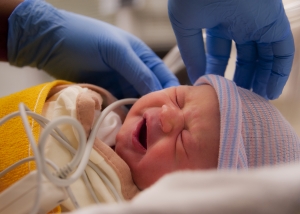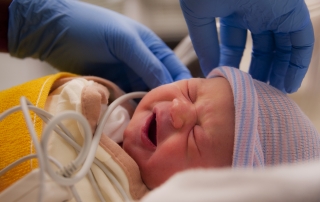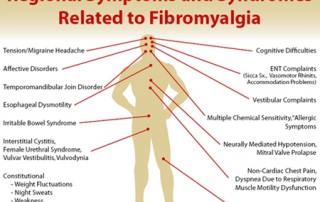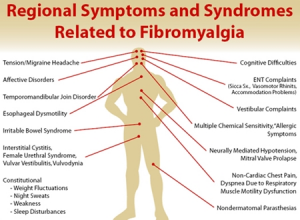New Study Finds That Birth Interventions Are Linked to Short- and Long-Term Health Concerns in Babies & Children
 A new study out of Australia reports that children born with medical interventions are more likely to have short- and long-term health issues. A group of international researchers teamed up with researchers from Western Sydney University, and they looked at a number of interventions during labor and delivery and the effect they had on babies in the first 28 days, as well as the effect they had on children up to 5 years of age.
A new study out of Australia reports that children born with medical interventions are more likely to have short- and long-term health issues. A group of international researchers teamed up with researchers from Western Sydney University, and they looked at a number of interventions during labor and delivery and the effect they had on babies in the first 28 days, as well as the effect they had on children up to 5 years of age.
The study looked at 500,000 women who had healthy, low-risk pregnancies and gave birth from 2000 to 2008. The medical interventions that were studied include induced labor, hormones to speed up labor, delivery by vacuum or forceps, and delivery by Cesarean section.
The babies who were born with one of these interventions experienced more jaundice and feeding problems in the first 28 days than babies who were born through a spontaneous vaginal delivery. Additionally, C-section deliveries left babies with more low temperatures that required more medical intervention. Some of these short-term risks were already well-known, and these are the concerns that parents are informed about when weighing the risk and reward of the intervention during labor and delivery.
However, parents are not made aware of long-term risks, mainly because the long-term health concerns haven’t been studied this thoroughly ever before. The researchers who did this study found several long-term problems when they looked the children at five years of age. Firstly, children born via Cesarean section, especially emergency C-section, had the highest rates of diabetes and obesity at age five. Additionally, children born with any form of intervention had higher rates of respiratory infections, like pneumonia and bronchitis, at age five than other children. They also had higher rates of diabetes, obesity, and eczema.
So what can be done? […]



 With more than 18% of the adult population suffering from some sort of anxiety disorder, anxiety is ravaging the US population. Even though anxiety, panic attacks, depression, and other mental disorders can lead to a variety of other health problems and dangerous behaviors, only about a third of those with anxiety disorders are seeking some sort of treatment for their anxiety.
With more than 18% of the adult population suffering from some sort of anxiety disorder, anxiety is ravaging the US population. Even though anxiety, panic attacks, depression, and other mental disorders can lead to a variety of other health problems and dangerous behaviors, only about a third of those with anxiety disorders are seeking some sort of treatment for their anxiety.
 Nearly one third of the US population has high blood pressure, and nearly half a million deaths are linked to high blood pressure each year. It is also a contributing factor in a number of very serious health conditions, including stroke and heart disease.
Nearly one third of the US population has high blood pressure, and nearly half a million deaths are linked to high blood pressure each year. It is also a contributing factor in a number of very serious health conditions, including stroke and heart disease.
 Coughing, sneezing, watery eyes, itchy throat… allergy season in Georgia is in full swing! Even though it’s early March and the temperatures are still cold, seasonal allergies are starting to take effect, and allergy sufferers are starting to avoid the outdoors and carry tissues around with them constantly.
Coughing, sneezing, watery eyes, itchy throat… allergy season in Georgia is in full swing! Even though it’s early March and the temperatures are still cold, seasonal allergies are starting to take effect, and allergy sufferers are starting to avoid the outdoors and carry tissues around with them constantly.
 Just about everyone has experienced
Just about everyone has experienced 

 Most people know that chiropractic care can help relieve back and neck pain, as well as other musculoskeletal discomfort. But did you also know that it can help relieve headaches, sometimes even instantly after an adjustment? Not only that, but consistent chiropractic care can reduce the severity and frequency of the mother of all headaches: migraines. Many individuals under chiropractic care even report complete cessation of migraines!
Most people know that chiropractic care can help relieve back and neck pain, as well as other musculoskeletal discomfort. But did you also know that it can help relieve headaches, sometimes even instantly after an adjustment? Not only that, but consistent chiropractic care can reduce the severity and frequency of the mother of all headaches: migraines. Many individuals under chiropractic care even report complete cessation of migraines!
 Vertigo is a medical condition that causes feelings of spinning and unbalance, generally because of a problem with the inner ear. Some other symptoms of vertigo include headaches, nausea, loss of hearing, ringing ears, sweating, or swaying. Vertigo is a common ailment after a head or neck injury. If you have experienced any of these symptoms or you suspect you have vertigo, Lithia Springs chiropractor Dr. Ronnie Bolar at Vital Life Chiropractic can help!
Vertigo is a medical condition that causes feelings of spinning and unbalance, generally because of a problem with the inner ear. Some other symptoms of vertigo include headaches, nausea, loss of hearing, ringing ears, sweating, or swaying. Vertigo is a common ailment after a head or neck injury. If you have experienced any of these symptoms or you suspect you have vertigo, Lithia Springs chiropractor Dr. Ronnie Bolar at Vital Life Chiropractic can help!
 Fibromyalgia is a chronic disorder with little known about its root cause and no verified cure. It ravages its sufferers with widespread sensitivity and sometimes debilitating pain across the entire body. It is typically also accompanied by fatigue and sleep disturbances, along with mood inconsistencies and cognitive problems. Fibromyalgia often co-exists with various other diseases and ailments, including irritable bowel syndrome (IBS), migraines, temporomandibular joint problems (TMJ), and more.
Fibromyalgia is a chronic disorder with little known about its root cause and no verified cure. It ravages its sufferers with widespread sensitivity and sometimes debilitating pain across the entire body. It is typically also accompanied by fatigue and sleep disturbances, along with mood inconsistencies and cognitive problems. Fibromyalgia often co-exists with various other diseases and ailments, including irritable bowel syndrome (IBS), migraines, temporomandibular joint problems (TMJ), and more.
